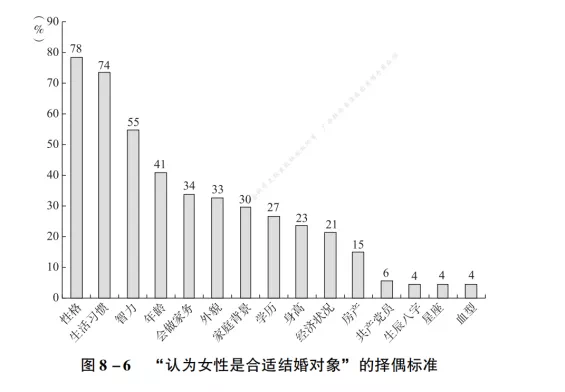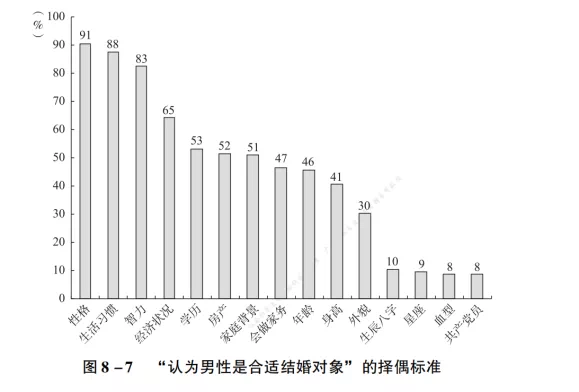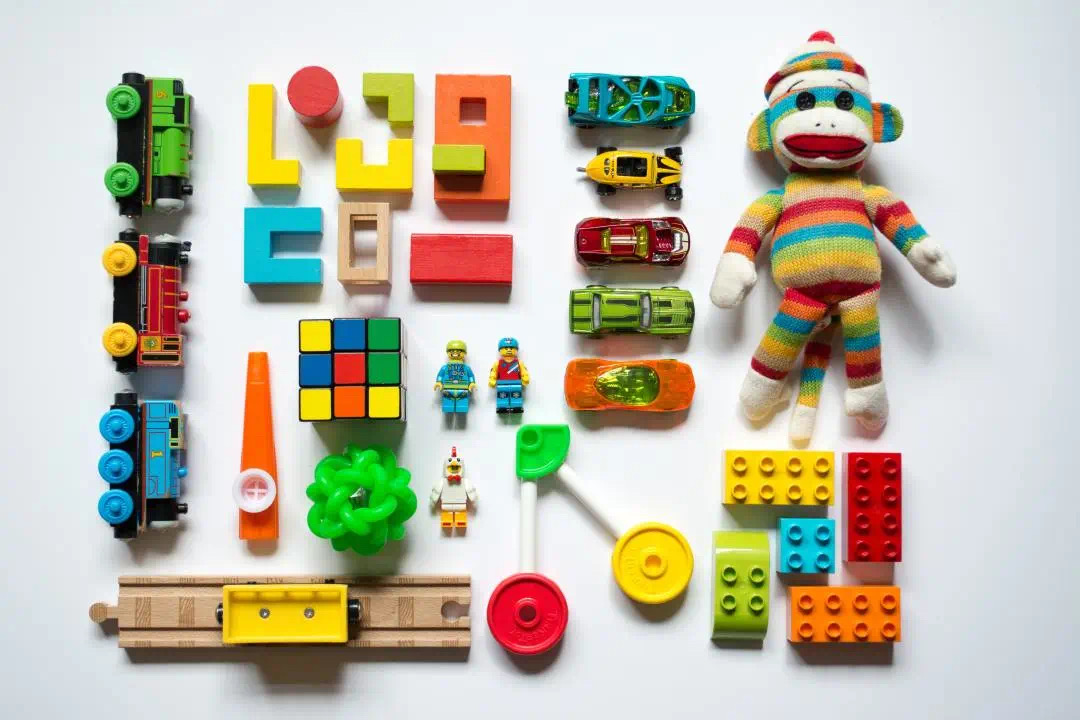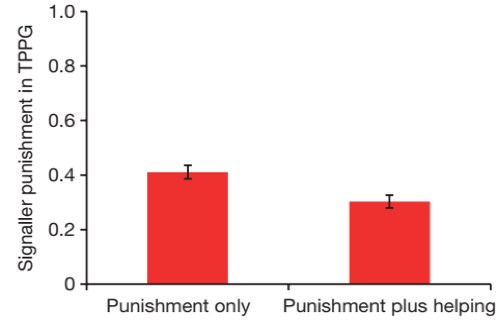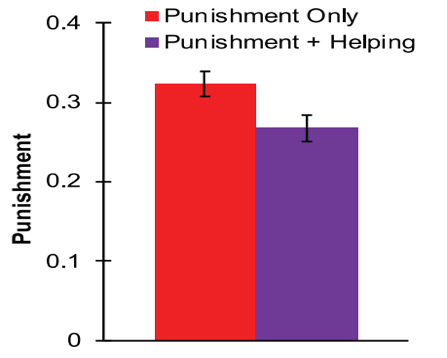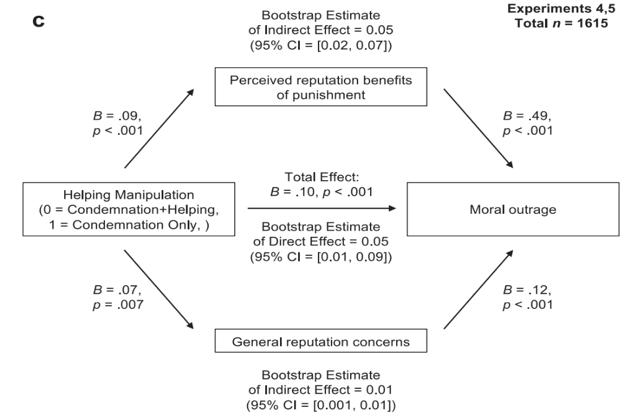Here’s a nightmare scenario: You wake up one day and realize you’re out of time—you’re on your deathbed.
想象一个梦魇般的场景:一天,你醒来,发现自己时日不多,死亡将近。
All the things you spent your life dreaming about doing “one day” are no longer an option. You’re out of one-days.
你一直以来一直幻想着“改天”会做的事情,如今已不再可能。你已经没有“改天”了。
Today is your last day alive. All you can do is look back on all the things you wish you’d had the courage to do but didn’t—full of regret.
今天是你生命的最后一天,你所有能做的,就是回望所有那些希望自己当时有勇气做但并没有去做的事情——你满腔遗憾。
Yeah, you were the “good son,” or “caring wife.” You did your duty. You did what you were supposed to do.
是的,你是个孝子、贤妻。你履行了自己的职责,你尽到了自己的本分。
But you never did what you wanted to do. You never reached your potential or pursued meaningful, purpose-driven work that fulfilled you.
但你从来没有做过自己想做的事情,你从来没有去挖掘自己的潜力,或追求富有意义和使命感的工作。
And you’re not alone.
而你并非孤例。
In her book Top Five Regrets of the Dying, Bonnie Ware says the most common regret of the dying is wishing they’d had the courage to live a life true to themselves.
Although her book is anecdotal, it’s backed up by a recent study that showed 76% of people have the same regret—they didn’t “fulfill their ideal self.” Meaning they didn’t achieve their hopes and aspirations.
在 Bonnie Ware 的著作《临终者的最大5个遗憾》中,她写道,临终者最常见的遗憾,是希望自己曾经有勇气过自己真正想要的生活。
尽管她的书仅基于听闻,但其观点的确也在一项近期研究中得到了佐证。该项研究显示,76%的人都拥有同样的遗憾:没有变成理想的自己。这意味着他们没有实现他们的希望和志向。
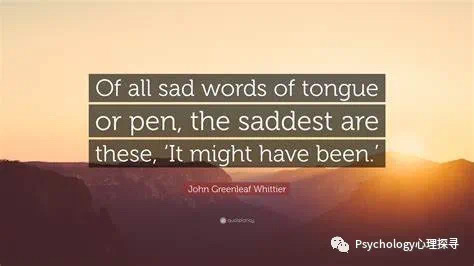
Put another way, most of us accept a mediocre life, then lie on our deathbed regretting it.
But why?
What keeps us from flourishing—from tapping into our potential and building a fulfilling life?
换言之,我们大多数人都接受了一个平平无奇的人生,然后躺在临终之床上充满后悔。
但为什么呢?
是什么阻碍了我们?是什么阻碍了我们挖掘个人潜力?是什么阻碍了我们追求圆满人生?
In my experience as a clinical psychologist and executive coach, it comes down to what I call the Four Horsemen of Fear. In Revelations, the Four Horsemen of the Apocalypse spell doom for humanity. Similarly, the Four Horsemen of Fear spell doom for you, me, and anyone who wants to get the most out of life.
They wreak havoc on our psyches and keep us from flourishing.
Who are these heralds of our mental destruction?
从我作为一名临床心理学家和管理者导师的经历来看,追根究底,是我所称为的“恐惧四骑士”。
在《启示录》中,末日四骑士为人类带来灭绝性灾难。
与之类似,恐惧四骑士也让每个希望追求精彩人生的人以失败告终。他们摧毁我们的思维,阻碍我们的发展。那么,这些思维末日使者们,究竟有哪些呢?
Who Are the Four Horsemen of Fear?
恐惧四骑士分别是什么?
The horsemen are the four most common limiting beliefs that hold us back from putting ourselves out there and doing meaningful work.
Some are easy to spot, some are sneaky, but all are conniving and whisper lies in our ears. The better you understand each, the easier you’ll spot them when they rear their heads.
它们是一些阻碍我们认真努力、阻碍我们做有意义事情的、一些最常见的具有限制性的理念。
一些很容易被发现,一些则比较狡猾。但它们都心怀不轨,在我们耳边轻语着各种谎言。你越了解它们,你就能够在他它们出现时更容易识别它们。
1
The 1st Horseman: Fear of Failure
骑士1:对失败的恐惧
Everyone knows this one because it’s the easiest to identify. It sows doubts like: What if I’m not good enough? What if I can’t make this work?
Fear of failure keeps us from ever starting. But its lesser-known brethren are equally debilitating.
这一恐惧,人人皆知,因为它很容易被识别。它会埋下自我质疑的种子:如果我不够好怎么办?如果我搞不定怎么办?
对失败的恐惧会阻碍我们迈出第一步。另外,它还有一些并不是那么广为人知的兄弟,但它们的破坏力却丝毫不逊色。
2
The 2nd Horseman: Fear of Ridicule
骑士2:对嘲笑的恐惧
If you’ve ever let what critics think, or what “they” (your friends, family, society) might say, stop you from putting yourself out there or doing meaningful work—the 2nd Horseman has reared its ugly head.
It whispers worries like: What if people judge me for doing this? What if they don’t like it?
Fear of ridicule tricks us into staying small and never taking a chance.
如果你曾经让批评者(你的朋友、家人、社会)的想法或言辞阻碍你认真努力或做某种有意义的事情,那么第二个骑士则已经扬起了丑陋的头颅。
它低声向你灌输这些担忧:如果别人因为这个说我怎么办?如果他们不喜欢这个怎么办?
对嘲讽的恐惧让我们自我禁锢,阻碍我们去大胆尝试。
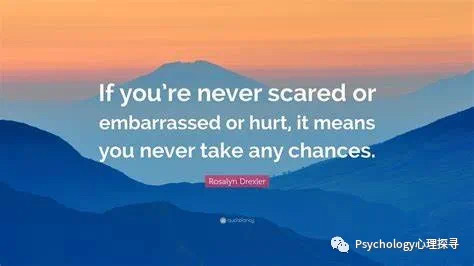
3
The 3rd Horseman: Fear of Uncertainty
骑士3:对不确定性的恐惧
The 3rd Horseman tells us we don’t have enough information to move forward. It whispers questions like: Which decision is right? Which direction should I choose?
So we constantly seek more. More info. More resources. More answers.
We spend so much time trying to find the “perfect” solution before we start, that we never take action.
Fear of uncertainty paralyzes us in a constant state of overanalysis.
这一骑士告诉我们,对于未来,我们尚未获得足够信息。它轻语着像是这些问题:哪个决策是正确的?我应该选择哪个方向?
在开始之前,我们耽于搜寻“完美”解决方案,我们在这一过程中耗费了如此多的时间,以至于我们从未采取任何行动。
对不确定性的恐惧,让我们始终被困于一种过度分析状态,从而让我们毫无进展。
4
The 4th Horseman: Fear of Success
骑士4:对成功的恐惧
How could we be afraid of achieving the very thing we say we want?
Because most of us believe success is a binary before-and-after state. If we’ve never achieved success, we only know the “before” version of ourselves. “Post-success” us feels alien.
Since we’re more familiar with our current state, we unconsciously self-sabotage to stay in familiar territory—to live in a world we understand. Achieving success represents crossing a threshold we can’t see beyond. And that’s terrifying.
为什么我们会害怕实现自己想要的目标呢?
因为我们大多数人都认为成功是一个泾渭分明的二元概念。如果我们从未获得成功,那么我们就仅仅知道成功前我们自身的样子。而成功后的我们,对我们而言是陌生的。因为我们对我们的现状感到更熟悉,因此我们就会无意识地自我破坏,以让自己继续待在这一熟悉领域之中,过自己能够理解得了的人生。实现成功,意味着我们需要跨越一个门槛,而这个门槛另一边是什么样子,我们对此一无所知,对我们而言,这是很恐怖的。
The 4th Horseman hides in thoughts like: If I succeed, what if I lose my ambition? What if achieving success means I’ve peaked in life? What if I can’t balance power with responsibility?
The 4th Horseman tells us we’ll become a completely different person if we succeed, someone we won’t recognize. As this new person, we might become stagnant, corrupted by power, or ambitionless.
第四位骑士躲藏在这类想法中:“如果我成功了,失去了自己的进取心怎么办?”“如果这次成功意味着我人生以后不会再有更辉煌成就了怎么办?”“如果我无法平衡权力与责任之间的关系怎么办?”
第4位骑士告诉我们,我们成功后,会变成一个彻底不同的人,一个连我们自己都会认不出的人。变成这个人之后,我们可能就会陷入停滞、被权力冲昏头脑、或者毫无进取之心。
Fear of success tricks us into abandoning worthwhile projects right when we’re on the precipice of victory, to quit the race as soon as we get close enough to see the finish line.
对成功的恐惧会让我们在胜利曙光之前放弃有意义的计划,在达到终点之前放弃这场比赛。
Every single limiting belief I’ve heard people struggle with falls into one of the horsemen’s domains.
Understanding our fears is the first step to overcoming them. Otherwise, they’ll keep holding us back from flourishing.
So how do you combat them? The next step is to recognize how the horsemen disguise themselves in self-sabotaging behaviors.
我所听到的每一个限制性想法,都属于这四个骑士中的某一种。
理解恐惧,是克服这些恐惧的第一步。否则它们会牵绊阻碍我们。那么,如何抵抗它们呢?下一步,就是识别这些骑士在自我破坏行为中的伪装方式。
What’s Hiding Behind Your Self-Sabotaging Behaviors?
你的自我破坏行为之后隐藏着什么?
One of the most common strategies psychologists use to understand a behavior is to do a functional analysis—which is basically when we look at a given behavior and try to figure out what function, or purpose, it serves.
心理学家在剖析行为时最常用的方法之一就是功能分析——基本上就是分析一个行为具有何种功能或是出于何种目的。
People don’t just do things randomly—our behaviors and habits exist for a reason.
Here’s the weird thing about self-sabotaging behaviors: No matter how destructive we know they are, or how badly we want to stop engaging in them, they still serve a specific function—which is, often, to help us avoid facing our fears.
人们并不会毫无缘由做某事,我们的行为和习惯都是存在某种原因的。
而自我破坏行为的诡异之处在于:无论我们多么了解它们的破坏性,或者我们多么想要终止它们,它们依旧发挥着某种特定的功能——而其功能通常是帮助我们回避自身恐惧。
1
Procrastination
拖延
The busier you stay, the more productive you are, right?
Spend hours getting to “inbox zero." Spend your time putting out every small fire that pops up. Have a great new idea? Immediately chase it while leaving your current projects half-finished.
Think procrastination is your problem? Think again.
越忙碌表示效率越高,对吗?
花数小时时间去处理所有未读邮件;事无巨细地扑灭任何冒出的小火花;有了一个绝妙的想法?立马抛下手头未完成的工作去追逐这一新想法。
你觉得拖延是你的问题?那么再好好想一下。
Performing a functioning analysis on procrastination may yield interesting results. Many chronic procrastinators can get stuff done when they’re up against a deadline.
The real question is: What is procrastinating helping you avoid? For many, the horsemen whisper: If you never finish, you never risk failure or success.
如果对拖延做一个功能分析,你会发现非常有趣的结果。很多长期拖延者们在面对截止期限时往往会很快完成工作。
真正的问题是:拖延,帮助你回避了什么?对很多人而言,这一骑士在轻声低语:如果你永远做不完,那么你就永远无需面对失败或成功的可能。
2
Perfectionism and Imposter Syndrome
完美主义和冒充者综合症
Perfectionism and imposter syndrome are two sides of the same coin—feeling like you aren’t good enough “yet.” You’re not ready. You’re unqualified. Better to wait until you learn more or feel more confident.
完美主义和冒充者综合症是同一枚硬币——感觉自己还不够好——的两面。你觉得你还没准备好,你还不够资格,最好等到自己再多多了解一些信息、感觉自己更自信时再开始。
How long have you been “writing” your book or article, but still won’t publish it? How long have you been thinking about, or tinkering on, that project but still haven’t shipped it? How long have you thought out every possible scenario and created the “perfect” plan, but still haven’t taken the steps to go from idea to execution?
Read all the self-help books and productivity “hacks” you want, but productivity isn’t your problem. Fear is.
你“写”你的文章或书籍已经写了多久了,却依旧迟迟未将其出版?你构思或准备你的某一计划已经多久了,却迟迟未开始正式行动?对某一想法,你考虑每一种可能情形、构建“完美”计划已经多久了,却迟迟未采取行动执行?你可以读尽可能多的自助书籍和工作效率提升小窍门,但你的问题并不在于工作效率,而是在于恐惧。
The horsemen whisper: As long as you don’t put yourself out there, you never risk ridicule or failure.
这一骑士低吟着:只要你不去努力,你就永远不用面对被嘲讽或失败的可能。
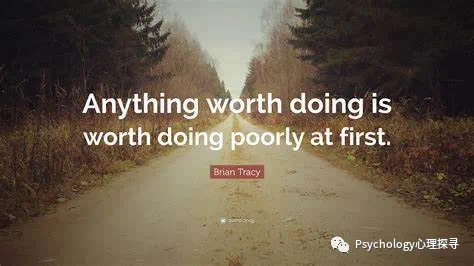
3
Complacency
安于现状
Most people would rather choose the path that leads to predictable misery than the one that offers the chance of a better life. Humans are creatures of habit. We gravitate toward what we can anticipate. Uncertainty is terrifying.
大多数人都会宁愿选择确定的痛苦之路,而不愿选择不确定的幸福机会。人类是习惯性动物,我们无可救药地朝着我们能预见的事物前行。不确定性,让我们感到恐怖。
So, we choose the path of least resistance. We lock our dreams and aspirations away in a box and throw away the key. We take the job that sucks but offers a steady paycheck. We spend 45 years of our lives miserable, looking forward to the day we retire so we can “finally enjoy life.” Then we hit 65, retire, maybe enjoy a few years of health with our loved ones, then die around 80.
所以,我们选择阻力最小的路线。我们将自己的梦想和抱负锁在一个盒子里,并扔掉了钥匙。我们选择了我们讨厌,但却工资稳定的工作。我们45年的时间里一直痛苦生活,期待着退休之后享受人生。然后我们到了65岁,退休了,可能与自己所爱之人享受几年健康幸福时光,然后,在80岁时死去。
We sacrifice 45 years of our life in misery to enjoy the last 15 because the alternative of venturing into the unknown is terrifying.
The horsemen whisper: As long as you stay in your comfort zone, you’re safe from uncertainty.
我们让自己痛苦地活45年,只为享受最后15年时光,一切只因为探索未知太令人恐怖。这一骑士轻声说:只要你待在你的舒适区内,你就无需面对不确定性。
Now you know each of the Four Horsemen of Fear, how they disguise themselves, and why we self-sabotage. Overcoming them comes next.
现在你知道了每一位恐惧骑士,以及它们如何伪装自己,以及我们为何会做出自我破坏行为。下面我们来看如何克服它们。
Fear Inoculation——think of the worst-case scenario
恐惧免疫——设想最坏情形
So we understand what holds us back from flourishing, but what can we do about it? One strategy I use is called fear inoculation.
现在我们知道了是什么在阻碍我们蓬勃发展,那么我们能做什么呢?我所使用的一个策略是:恐惧免疫法。
We inoculate ourselves from viruses using vaccines that have a deconstructed version of the virus inside them. This gives our bodies the ability to “practice” overcoming the virus if we ever encounter the real thing.
在抵抗病毒时,我们会使用被破坏结构的病毒来制作疫苗,让我们实现免疫。这样就可以让身体能够练习如何打败真正病毒。
We can use this same strategy to inoculate ourselves against the four horsemen by deconstructing our fear and “practicing” ways to overcome it in case we ever encounter the real thing, aka if our fear comes true.
我们也可以通过解构我们的恐惧,练习抵抗方法,来让自己获得对这四位骑士的免疫。
If you’re a cognitive and behavioral therapy buff, you know modern psychology is rooted in ancient philosophies like stoicism. One Stoic exercise is called premeditatio malorum—Latin for “premeditation of evils.” Fear inoculation is a modern equivalent of this ancient practice.
如果你十分了解认知行为疗法,你就会知道现代心理学植根于诸如斯多葛派古老哲学流派。斯多葛派所提倡的一个做法被称为:premeditatio malorum,这一拉丁短语的意思是“提前思考邪恶”。恐惧免疫,是这一古老行为方式的现代版本。
Try this simple exercise to inoculate yourself against the four horsemen of fear:
Assume your worst fears come true.
Now, with that assumption in place, how will you deal with it?
Here’s how this can look for each of the horsemen.
试着用下面这一简单练习,来获得对四位恐惧骑士的免疫:
假设你最坏的恐惧成真。
现在,在这一假设前提下,你会如何应对?
下面我们逐个骑士分析一下。
1
Fear of Failure/对失败的恐惧
Assume you fail.
Now, how will you learn from your experience?
What do you need to do differently next time? In hindsight, what mistakes were avoidable and how will you ensure they don’t happen again?
Where did you take risks when you shouldn’t have or avoided risks when you could have taken them?
What resources did you not take advantage of that could’ve helped you succeed?
假设你真的失败了。
现在,你会从你的经历中学到什么?
下一次你需要采取怎样不同的做法?回望的话,哪些错误是可以避免的?如何可以确保不会再犯这些错误?
你冒了哪些本不该冒的风险,或者回避了哪些本可以选择的风险机遇?
有哪些资源是本可以帮助你成功,但你当时却未加以利用的?
Dig into what specifically contributed to your failure.
Learn from it now, in the safety of this thought experiment, so you can avoid the avoidable by deconstructing and reverse-engineering what can lead to failure in the real world.
The better you understand what could lead to failure, the better you’ll be equipped to avoid (or recover from) it.
深入挖掘曾导致你失败的具体因素。
在这一安全的思维试验中,思索、学习,通过解构和逆向分析现实世界中会导致失败的种种因素,让自己能够避免那些可以回避的错误。
对能够导致失败的因素了解得越多,你就能够更好地避免失败(或更好地从中恢复)。
2
Fear of Ridicule
对嘲笑的恐惧
Assume you get backlash from your friends, family, or followers.
What’s your strategy?
Will you apologize or make amends (if necessary)?
How will you help the issue blow over?
Are the people criticizing you actually people whose opinions are worth caring about?
You’ll never be able to please everyone.
假设你受到了来自亲朋好友或追随者的打击。你的策略是什么?你是否会道歉或进行弥补(如果必要)?
你会做什么让大家忘记这件事?
关于那些批评你的人,你是否真的在乎他们的观点?
你永远不会让所有人都满意。
Are you focusing on pleasing the right people? In business, this may mean clarifying your niche and messaging. In your personal life, it may mean focusing on pleasing yourself and valuing your own opinion, wants, and needs over what your old high school friends—whom you haven’t talked to in 15 years—might say about you.
你是否在聚焦于让自己取悦正确的人?在商界,这意味着精准找到适合自己的专属客户群,集中资源向他们发送信息。在个人生活中,这意味着聚焦于取悦自己、重视自己的观点、欲求和需求,而不是本末倒置去重视15年未曾联系的高中老同学会怎么说你。
If you need an extra nudge to overcome this fear, check out Theodore Roosevelt’s “Man in the Arena” speech—it’s super helpful for putting things into perspective anytime you start to let what other people “might” say keep you from putting yourself and your ideas out into the world.
如果你还需要更多的帮助让你克服这一恐惧,不妨看一下罗斯福总统的《竞技场上的人》演讲辞——当你开始因为担心别人对你的看法而停止努力或不敢表达自己想法时,这篇演讲辞能很好地帮助你客观全面看待整个情形。
3
Fear of Uncertainty
对不确定性的恐惧
Assume that rather than risk making the wrong decision, you made none and stagnated.
How will you recover now?
What information did you need but didn’t get?
We can never know all the variables, so what was the minimum amount of information you needed to make a viable decision?
How can you get this information?
假设你并没有去冒做出错误决策的风险,而是选择了什么都不做,停滞原地。
你现在如何重整旗鼓?
有哪些信息是你需要的但却没有获得的?
我们永远无法掌握所有变量。那么,如果要做一个可以行得通的决策,你最起码需要的信息是什么?
你如何可以获得这一信息?
Life (and business) is a game of iteration—making incremental improvements based on what we learn works and what doesn’t.
Pursue progress, not perfection.
人生(和商业)是一个不断迭代的游戏——根据我们所积累的经验和教训逐步改进提升。追求进步,而非追求完美。
4
Fear of Success
对成功的恐惧
Assume you succeed. Congratulations!
What’s on the other side of success? Paint a vivid picture of what life post-success looks like. The more concrete, the better you’ll be able to inoculate yourself.
Do you become complacent and lose all motivation to better yourself?
Does the world hang on your every word because they view you as a thought leader, so you’re terrified of how much weight your words carry?
假设你成功了。恭喜恭喜!
成功的那一边是什么样子的?勾勒一幅清晰的成功后的画面。画面越具体,你就能更好地让自己免疫。
在这幅画面中,你是否变得安于现状,失去了自我提升的动力?
是否整个世界都将盯着你说的每个词,因为他们将你视为一位思想领袖,所以你很害怕自己话语将具有的分量?
If all you’ve ever known is the grind and climbing your way to the top, does it mean the top is just a plateau and life will never get better?
How will you continue to grow and challenge yourself?
How will you ensure you don’t let success go to your head?
如果你一直以来知道的只是辛苦努力去向上攀爬,这是否意味着顶峰只是一个平原,你的生活就此到顶,再不会有提升?
Until you scale your first mountain, you can’t see anything beyond it. But once you reach the peak, your perspective changes. You realize you’re at the beginning of the mountain range. Success isn’t something to be feared, because your first success opens your eyes to opportunities you couldn’t imagine before.
在你登上第一座山山顶之前,你无法看到这座山之后的任何风景。但一旦你攀上顶峰,你的视野将会改变。你会意识到你只不过是在一个山脉的起点。成功并不可怖,因为你的第一次成功会开阔你的眼界,让你看到你之前无法想象的机遇。
If you can scale the first mountain, you can scale the next.
如果你能攀上第一座山峰,那么你就能攀上第二座山峰。
Wrap Up
总结
Ultimately, we fear the unknown:
Will I fail?
Will other people judge me?
Will I make the wrong decision?
Will I become a different person after success?
By making the unknown known—or at least knowable—through fear inoculation, we rob the four horsemen of fear of their power over us.
追根究底,我们害怕的,是未知。
我会失败吗?
其他人会评判我吗?
我做出的决策会是错误的吗?
成功后我会变成完全不同的人吗?
通过让未知变成已知——至少变成可知,通过恐惧免疫,我们就剥夺了恐惧四骑士对我们的支配力量。
When we feel prepared to deal with our fears coming true, we no longer need to avoid them through self-sabotaging behaviors.
当我们感到自己做好了应对恐惧成真的准备,我们就不再需要通过自我破坏行为去回避它们。
So the next time one of the horsemen starts to rear its ugly head, practice fear inoculation.
下一次,当恐惧四骑士之一再次扬起它丑陋的头颅时,对自己实施恐惧免疫。
Vaccines have helped us survive.
Fear inoculation can help us flourish.
病毒免疫可以帮助我们安全存活,
恐惧免疫可以帮助我们展翅腾飞。


